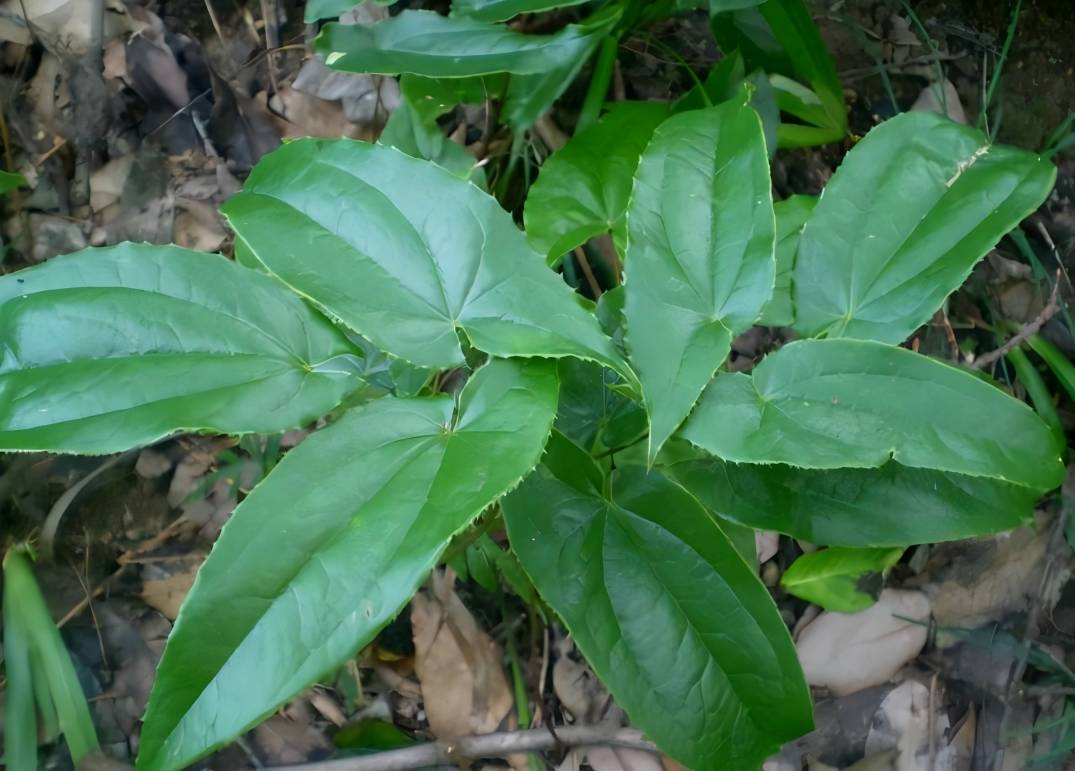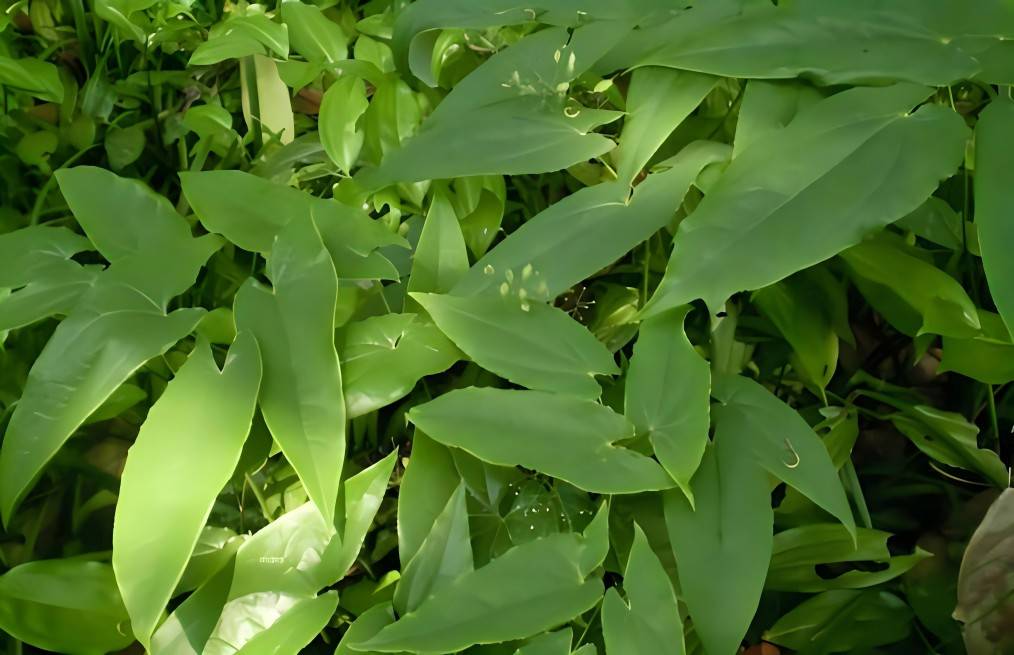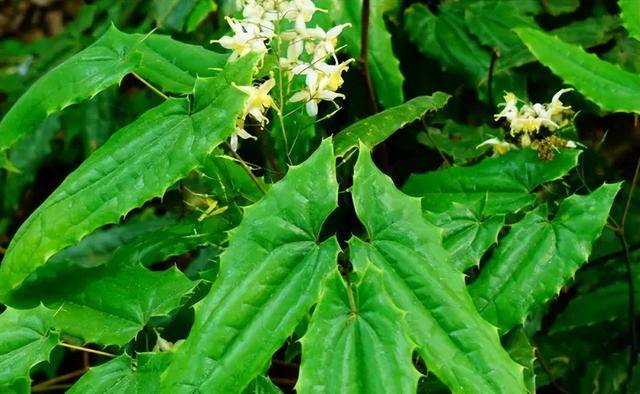What Is the Benefit of Epimedium?
Research into the pharmacological effects of horny goat weed and its various constituents is becoming increasingly in-depth. Horny goat weed has been found to regulate the body's immune function, enhance male reproductive function, delay the progression of renal failure, dilate blood vessels, improve blood rheology and promote the function of the hematopoietic system. The pharmacological effects of horny goat weed are now summarized as follows:
1. Immune regulation
Studies have shown that Epimedium and its extracts have a good effect on the nonspecific, humoral and cellular immunity of experimental animals and humans, and exhibit a biphasic regulatory effect. This suggests that Epimedium and its extracts may become drugs with good prospects for the regulation and enhancement of immune function, and play a greater role in the treatment of immunodeficiency and immune regulation disorders.
1.1 Effect on immune organs
The thymus and spleen are central and important peripheral immune organs that play an important role in regulating the body's immune function. The effect of epimedium polysaccharide on the thymus is mainly manifested in activating the immune function of thymus cells, enhancing the ability of thymocytes to produce IL-2 and their cell proliferation ability, and causing mature thymocytes to be released into the periphery, promoting the transfer of thymocytes to the spleen, causing atrophy of the thymus, suggesting that strengthening the “emptying” effect of thymocytes is the main link in enhancing T cell function [1-3]. Icariside and icariin can both reduce thymus weight and increase spleen weight, and there is a significant quantitative effect relationship. The combined use of icariside and icariin can enhance the effect.
1.2 Effect on immune cells
Macrophages are important immune cells with multiple functions, and can play an important regulatory role in immune function by processing antigens and releasing soluble cytokines. Epimedium flavonoids can enhance the phagocytic function of peritoneal macrophages [5], and epimedium glycosides can also significantly activate macrophages, enhance their phagocytic function, and promote the production of IL-2 and TNF [8]. Epimedium flavonoids can also increase the level of haemolysin antibodies in mouse serum, increase the number of antibody-forming cells in the spleen, and promote the lymphocyte transformation response stimulated by PHA [5].
The body's immune system is a self-regulating system that maintains its own relative balance and produces normal immune responses. T s cells play an important role in the immune regulatory loop. Epimedium polysaccharide can promote the production of Ts cells and inhibit antibody production; epimedium saponins can reduce the production of Ts cells and promote the level of antibody production. These two components have opposite regulatory effects on T s cells [7]. In mice, the application of azidothymidine inhibits hematopoietic function and reduces the proliferative function of spleen T lymphocytes. Epimedium polysaccharide can significantly improve the proliferative function of T lymphocytes and their ability to produce IL-2 [8]. In vitro experiments have found that icariin can significantly promote ConA-induced proliferation of mouse splenic lymphocytes, and at the same time promote colony stimulating factor (CSF)-like activity, suggesting that icariin can enhance T cell function by producing CSF-like activity [9].
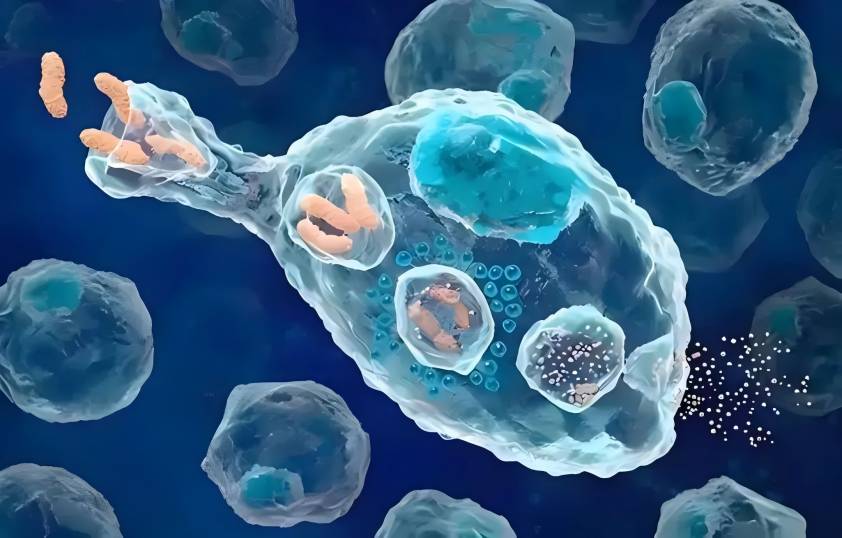
B lymphocytes differentiate into plasma cells and secrete immunoglobulins, which are responsible for humoral immunity. Epimedium polysaccharide can increase the 3H-TdR incorporation of splenocytes in nude mice and stimulate the proliferation of B lymphocytes [10]. Icariin can increase the number of antibody-producing cells in the spleen of mice immunized with SRBC and can counteract the immunosuppression caused by cyclophosphamide [11].
1.3 Effect on cytokines
In the process of immune response, the interaction of immune cells is not only through direct contact between cells, but also the regulatory effect of cytokines. Cytokines are a class of high-activity, low-molecular-weight protein polypeptides produced by immune cells and related cells that regulate cell function. Epimedium has a significant effect on improving the activity of IL-2 in mice with Yang deficiency caused by hydroxyurea [12].
Icaritin can enhance the effect of PHA on inducing IL-2, 3, and 6, and this effect is dose-dependent. It has a promoting effect on the differentiation and proliferation of various lymphocytes, such as B cells, NK cells, LAK cells, and ADCC cells. Icariin can enhance the function of NK, LAK, and B cells by promoting the production of IL-2 [13]. Icariin has a significant effect on enhancing the IL-2 activity of peripheral blood lymphocytes in hemodialysis patients [14], and can also increase the level of IL-6 and decrease the level of IL-2R [15], significantly improving the quality of life of hemodialysis patients. Icaritin can induce mouse splenic lymphocytes to produce colony stimulating factor (CSF)-like activity, which enhances T cell function and produces an immunostimulatory effect [9].
2 Effects on the reproductive system
Epimedium powder has the effect of tonifying the kidney and strengthening yang, and is widely used in clinical practice to treat male infertility and sexual dysfunction. Studies have found that icariin can significantly increase the weight of the mouse epididymis and seminal vesicles, significantly promote the development of the epididymis and seminal vesicles in young mice, and have a significant androgen-like effect. Icariin can also significantly promote basal testosterone secretion and cAMP production, that is, promote increased testosterone secretion through the cAMP pathway. In addition, Epimedium brevicornum also contains essential trace elements such as zinc, manganese and iron, which are closely related to male reproductive function [16]. After processing, Epimedium brevicornum can promote sexual function and increase plasma testosterone levels in mice. The strength of its effect is no different from that of intramuscular testosterone, and there is no decrease in testicular weight caused by intramuscular testosterone, which significantly promotes testicular tissue proliferation and secretion [17].
3 Effects on hemodynamics and hemorheology
Icariside directly relaxes vascular smooth muscle and inhibits the contraction of smooth muscle caused by adrenaline, serotonin and high potassium. This effect is mainly related to blocking Ca2+ influx [18]. Epimedium also increases cerebral blood flow in experimental animals by dilating vascular smooth muscle, reduces cerebral vascular resistance, and protects against cerebral ischemia [19,20]; it also increases coronary blood flow in isolated and in vivo experimental animals and has a protective effect against myocardial ischemia caused by pituitary adenylate cyclase-activating polypeptide [21].
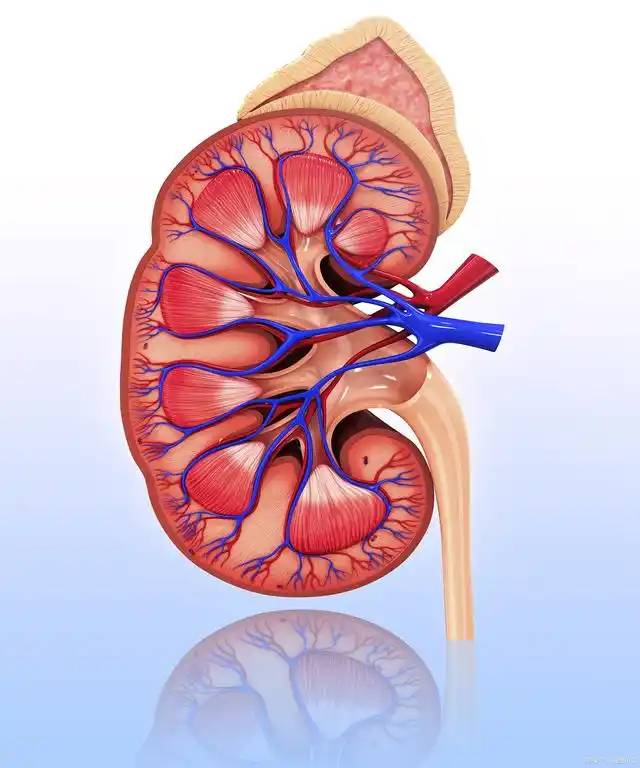
Icaris flavonoids can significantly reduce whole blood viscosity and red blood cell aggregation, while having no significant effect on platelet function, plasma viscosity or specific thrombosis. Icaris flavonoids reduce whole blood viscosity by reducing red blood cell aggregation [22, 23]. Epimedium total flavonoids can also increase the activity of plasminogen activator in mouse macrophages, and the plasminolytic activity of macrophages is also significantly increased. It can inhibit the increase in blood pressure and reduce mortality in stroke-prone spontaneously hypertensive rats [24].
4 Improve renal function
The Na+-K+-ATPase in the homogenate of the renal cortex is a marker enzyme of renal tubular epithelial cells and plays an important role in the active transport of sodium across the cell membrane. Changes in its activity are related to the degree of damage to renal tubular cells. In the model of acute renal damage caused by gentamicin, the activity of the Na+-K+-ATPase in the renal cortex decreased significantly, but epimedium increased it, reducing gentamicin's damage to the renal tubules and renal interstitium [25]. Studies have also found that Epimedium brevicornum can significantly reduce histological changes in the kidneys and reduce the production of extracellular matrix. This is related to its ability to dilate blood vessels, lower blood pressure, thereby reducing the pressure inside the remaining glomeruli, reducing the harm of high perfusion and high pressure, enhancing the body's immunity, protecting the immune function of renal failure, delaying the progression of renal failure, and reducing the distribution of extracellular matrix in the kidneys.
5 Effects on the hematopoietic system
Icaritin can promote the production of CSF-like activity by mouse splenic lymphocytes [9]. CSF is a type of glycoprotein that promotes the proliferation, differentiation, maturation and survival of bone marrow cells in humans or animals. It can promote hematopoiesis in the body and stimulate the function of mature cells, which is important for the blood-forming function of the body. Icaritin can synergistically induce IL-2, 3, and 6, while IL-3 can act on bone marrow multipotent stem cells to promote the differentiation and proliferation of various blood cells, and IL-6 can synergistically support the proliferation of multipotent stem cells with IL-3, thereby promoting hematopoietic function [13].
Epimedium polysaccharide can increase the number of peripheral blood leukocytes, bone marrow hematopoietic stem cells and granulocyte-monocyte progenitor cells, which is related to the promotion of cell DNA synthesis by polysaccharides [8].
With the continuous development of traditional Chinese medicine pharmacology and the organic combination of pharmacological and phytochemical research, pharmacological research on Epimedium will gradually delve into the molecular, cellular, subcellular and genetic levels, providing an important reference for clinical application.
References
[1]Ding Yan, Xing Shantian, Zhou Jinhuang. Immunopharmacological effects of polysaccharides and glycosides from Epimedium on the thymus. Chinese Pharmacology Bulletin, 1993; (5): 342
[2]Ding Yan, Xing Shantian, Zhou Jinhuang. Immunopharmacological mechanism of polysaccharides from Epimedium in causing thymus atrophy in mice. Chinese Journal of Immunology, 1993; (3): 185
[3]Zhou J. Pharmacology of Traditional Chinese Medicine. People's Military Medical Press. September 1994. First edition, 172-180
[4]Zhou J. Pharmacology of Traditional Chinese Medicine. People's Military Medical Press. September 1994. First edition, 157-171
[5]Wang T, Xing S, Zhou J. Experiments on the promotion of immune function by total flavonoids from Epimedium. Research on Chinese Patent Medicine, 1987; (2): 27
[6] Li S, Li T, Zheng Q, et al. Effects of icariin on the function of peritoneal macrophages in mice. Journal of the Second Military Medical University, 1995; 16(6): 541
[7]Li Shutong, Li Tiejun, Zheng Qinyue, et al. The effect of Epimedium polysaccharide and Epimedium saponins on suppressor T cells. Chinese Journal of Immunology, 1986; (2): 74
[8]Ding Yan, Chen Ping, Xing Shantian. The antagonistic effect of Epimedium polysaccharide on the inhibition of hematopoietic and immune functions in mice by azidothymidine. Chinese Journal of Pharmacology and Toxicology, 1994; 8(3): 203
[9]Li Shutong, Li Tiejun, Zheng Qinyue, et al. Effect of icariin on the proliferation of mouse splenocytes in vitro and its colony-stimulating factor-like activity. Journal of the Second Military Medical University, 1995; 16(4): 340
[10] Ding Yan, Xing Shantian, Zhou Jinhuang. Study on the effect of Epimedium polysaccharide on the 3H-TdR incorporation and induction of interferon in mouse T and B cells. Chinese Journal of Immunology, 1985; 1(6): 42
[11]Wang Tianran, Xing Shantian, Zhou Jinhuang. The effect of icariin on antibody production. Pharmaceutical Bulletin, 1987; (9): 533
[12]Xiao Chonghou, Sun Yi, Luo Yongzhen, et al. Effect of Icaris from Sichuan on IL-2 activity in mice with hypo-uricemia. Chinese Journal of Immunology, 1995; 11(6): 373
[13]Zhao Yong, Cui Zhengyan, Zhang Ling, et al. Study on the synergistic induction of IL-2, 3 and 6 by icariin. Chinese Journal of Immunology, 1996; 12(1): 43
[14]Liao Hongjun, Chen Xiangmei, Li Wenguo, et al. Effect of icariin on the quality of life and cellular immune function of hemodialysis patients. Chinese Journal of Integrated Traditional and Western Medicine, 1995; 15(4): 202
[15]Chen Xiangmei, Zhou Meihua, Wang Jianzhong, et al. Changes in sIL-2R and IL-6 in hemodialysis patients and the immunomodulatory effect of Epimedium. Chinese Journal of Internal Medicine, 1995; 34(2): 102
[16]Xiong Yuebin, Zhou Chuhua. Effects of Herba Epimedii and Cuscuta Extracts on Male Reproductive Function. Chinese Journal of Pharmacy, 1994; 29(2): 89
[17]Niu Rui. Effects of Herba Epimedii before and after processing on mouse plasma testosterone and sex organs. Chinese Journal of Traditional Chinese Medicine, 1995; (9): 18
[18]Wang Min, Liu Chongming, Zhang Baofeng. The effect of icariin on vascular smooth muscle. Journal of Shenyang Medical College, 1993; (3): 185
[19]Wang Min, Liu Chongming, Zhang Baofeng. Study on the cerebral vasodilatory effect of icariin. Journal of Shenyang Medical College, 1991; (4): 22
[20] Liu Chongming, Wang Min, Liang Lichun. The effect of flavonoids from Epimedium on cerebral blood flow and cerebral ischemia. Journal of Shenyang Pharmaceutical University, 1995; 12(3): 192
[21]Jiang Hua, Shui Bo, Rao Manren, et al. Study on the effect of Xin Fukang on coronary sinus flow and myocardial oxygen consumption in cats. Chinese Patent Medicine, 1991; (8): 25
[22] Gao Qiming, Yuan Bingxiang, Li Shengzheng, et al. Effects of Icaris total flavonoids on platelet function in rabbits and sedative-hypnotic and endurance effects in mice. Journal of Northwest Pharmacy, 1992; (3): 15
[23]Gao Qiming, Yuan Bingxiang, Zhao Suzhen, et al. Effect of Icaris total flavonoids on blood rheological indicators in rabbits. Journal of Xi'an Medical University, 1992; (3): 223
[24]Shan Yuqing, Yin Zhizhang, Xu Jin. Effects of Icaris flavonoids on the fibrinolytic system and on mortality in mice after stroke. Chinese Academy of Medical Sciences Journal, 1992; (6): 419
[25]Chen Xiangmei, Tian Jin, Yu Lifang, et al. Experimental study of Icaris, Cordyceps mycelium, and Astragalus in the prevention of acute kidney damage caused by gentamicin. Chinese Journal of Pathophysiology, 1993; (6): 758
[26]Cheng Qing, Chen Xiangmei, Shi Suozhu, et al. Effects of the traditional Chinese medicine Epimedium on the immune pathology and extracellular matrix of rats with chronic renal failure. Chinese Journal of Internal Medicine, 1994; 33 (2): 83


 English
English French
French Spanish
Spanish Russian
Russian Korean
Korean Japanese
Japanese